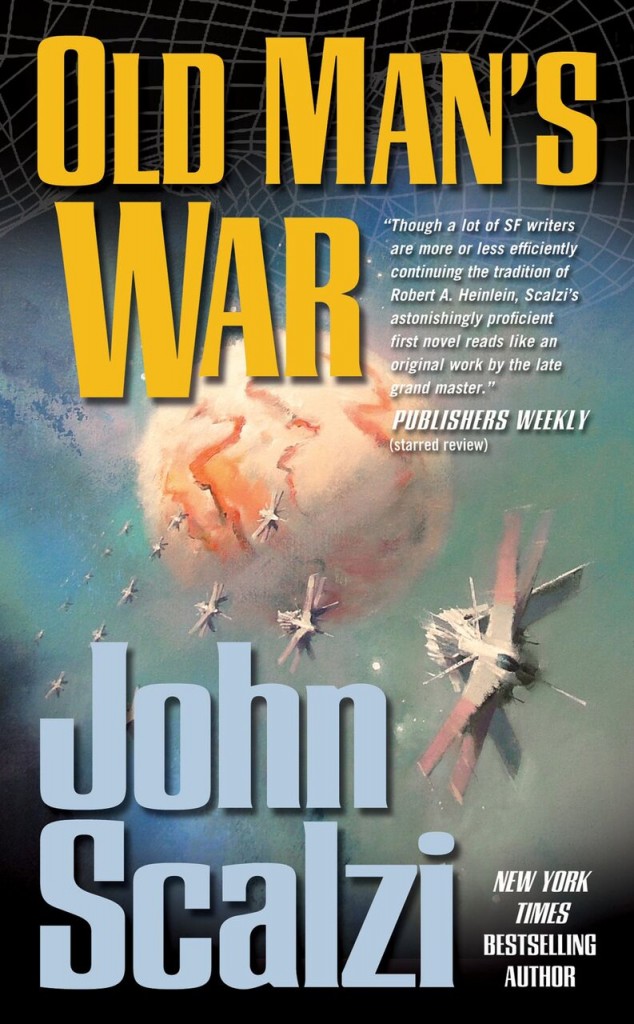
A recommendation for the ‘Old Man’s War’ series
By Duncan Fingarson, Contributor
Today, John Scalzi is a multi-Hugo-Award-winning author. In 2013, his delightfully meta novel Redshirts won the Hugo, and he could well be considered one of the best currently active sci-fi writers. But not so long ago, he was a relative unknown, his first published novel arriving in 2005. That novel was Old Man’s War.
Old Man’s War follows Colonial Defence Force recruit John Perry, as he joins the army on his 75th birthday. The novel pays tribute to classic science fiction, with the work of Robert A. Heinlein specifically mentioned in the acknowledgements, as well as a host of classic military fiction tropes. The character of Master Sergeant Antonio Ruiz is perhaps the most obvious of these, and the lampshade hanging involved in his sections of the first novel was especially amusing.
From boot camp through combat, John Perry must come to terms with a galaxy full of angry violent aliens that all want to kill him. There are some masterfully written combat scenes, and a particularly good focus on the bonds between fellow soldiers.
That said, however, the books aren’t a testosterone-fuelled war epic. There’s a lot of deeper thought in there, and some very relevant questions get asked, especially later on in the series. When the first book ends, John Perry gets left behind for a time so that the second book (2006’s The Ghost Brigades) can focus on Jane Sagan, one of the special forces soldiers introduced in the first book. From here on out, things get a little more introspective, as questions are raised about the meaning of loyalty and the implications of technology.
By the time of the third book in the series, The Last Colony (2007), John makes his return as the leader of a new human colony. He’s joined by Jane, and the vast majority of the book focuses around their struggle to survive. It’s the most political of the three books, with the ultimate message being a question of how much can we really trust our governments. In today’s world, that’s a question worth asking and worth reading about.
In the interests of not spoiling too much, this column has by necessity been a little vague. I will say that the third book ends on something of a hopeful note, and that however grim the story might be in places, there’s always a bit of humour to lighten the tone. I’d recommend Scalzi’s work to any fan of science fiction. If you’ve never read anything by him before, then this is a good place to start.

